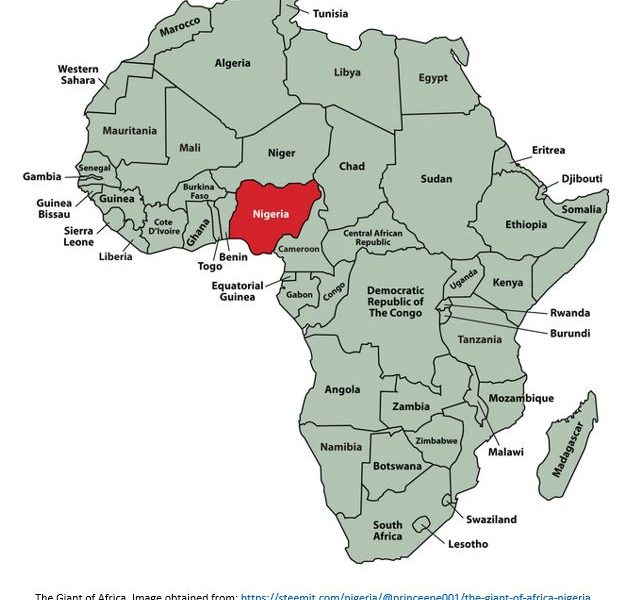We haven’t even started Christmas shopping…This is how I originally started this post and then went on to discuss how 70+ farmers were murdered by terrorists. You know, our bubble is not so bad…
Today’s Featured Article: Nigeria: Boko Haram killed 76 farmers in Borno State – DW discusses the latest Boko Haram attack and the continued problems in Nigeria. The other candidates for our featured article on the Homepage in the What Others are Writing Section that come in for honorable mention are:
China’s space ambitions: robot on Mars, a human on the moon – AP
China’s landing of its third probe on the moon is part of an increasingly ambitious space program that has a robot rover en route to Mars, is developing a reusable space plane and is planning to put humans back on the lunar surface.
and Assessing the Impact of the Information Domain on the Classic Security Dilemma from Realist Theory – Divergent Options
The weaponization of information as an instrument of security has re-shaped the traditional security dilemma faced by nation-states under realist theory. While yielding to the anarchic ordering principle from realist thought, the information domain also extends the classic security dilemma and layers it with new dynamics. These dynamics put liberal democracies on the defensive compared to authoritarian regimes.
Once again, there are so many important articles out there, so, if you haven’t already done so, head over to the front page to keep tabs on what is going on around the world.
Why This is Important
Nigeria is one of the most important countries in Africa and part of the greater Sahel Region that has been battling Islamic terror for many years. The terrorist there have international ambitions and stability there is crucial to the region and perhaps Africa itself.
Featured Article
Earlier this week we mentioned the Nigeria massacre: number shoots up to at least 110 from Africa News and today we are going to dive into what happened there and why. Our featured article, Nigeria: Boko Haram killed 76 farmers in Borno State – DW focuses on Why but let’s start with what happened. From Africa News:
The number of farm workers killed on a rice farm in northeastern Nigeria on Saturday has shot to at least 110 people, according to a United Nations report.
The massacre is the deadliest attacks in the region suspected to have been carried out by Boko Haram, locals said. The victims were buried on Sunday.
The actual number of victims is unclear as DW reports it at 76, but that is not as important as the act itself. Once again, the Islamic Terrorists have carried out a large-scale attack on civilians further destabilizing the region. Boko Haram, the terrorist organization that has claimed responsibility for the attack, has deep roots in Nigeria and has shown a willingness to work with both ISIS and Al Qaeda. Britannica describes Boko Haram:
Islamic sectarian movement, founded in 2002 by Muhammed Yusuf in northeastern Nigeria, that since 2009 has carried out assassinations and large-scale acts of violence in that country. The group’s initial proclaimed intent was to uproot the corruption and injustice in Nigeria, which it blamed on Western influences, and to impose Sharīʿah, or Islamic law.
For a deeeeep dive on Boko Haram, you can spend a day or two here at the Combating Terrorism Center at West Point which includes articles like this: Exploding Stereotypes: The Unexpected Operational And Demographic Characteristics of Boko Haram’s Suicide Bombers. Here is a bit more on the history of Boko Haram (from 2017):
Initially formed as a Nigeria-centric, grassroots Islamist extremist organization,1 Boko Haram has evolved into a militant movement of transnationalist proportions. From a geographical perspective, the Islamist sect has expanded its footprint outside of its strongholds in northeastern Nigeria into the wider Lake Chad region.2 In doing so, Boko Haram is now seen as exerting an operational presence in Niger’s southeastern Diffa and Zinder regions, Cameroon’s Extreme-North (Far North) province, and the Lac Region of Chad where it continues to launch attacks against both state and civilian interests.
So that answers the what and who of this massacre but why? Why kill more than 70 rice farmers? For that we will go to our featured article:
Boko Haram has admitted to killing scores of rice farmers in northern Nigeria. The terror group said the attacks were carried out in retribution for farmers cooperating with the Nigerian military.
The article continues:
The grim search for bodies continues after gunmen on motorbikes attacked the area outside Borno state’s capital, Maiduguri, on Saturday, slaughtering dozens of laborers in rice fields near the village of Zabarmari.
It was initially unclear which Boko Haram faction was behind the assault, but the main group loyal to shadowy leader Abubakar Shekau said in a video Tuesday it was “responsible for what happened around Maiduguri in recent days… especially in Zabarmari.”
Shekau, in a three-minute video, said his group killed 78 farmers because “the farmers arrested and handed one of its brothers to the Nigerian Army.”…
…”You thought you would apprehend our brethren and hand him over to the military and live in peace?” a Boko Haram jihadist said in the video.
These actions continue to undermine the legitimacy of the Nigerian and other regional governments leading to instability and a continued need for support from nations like the U.S. and France which we previously wrote about here. To fully understand how big of a problem this is, we return to our featured article:
At least 36,000 people have been killed and 2 million displaced since Boko Haram launched its jihadi insurgency in northeast Nigeria in 2009.
At this point, I am not sure what can be done differently to achieve an acceptable level of governance that will limit the actions of Boko Haram and other terror organizations but our continued involvement is almost assured.

